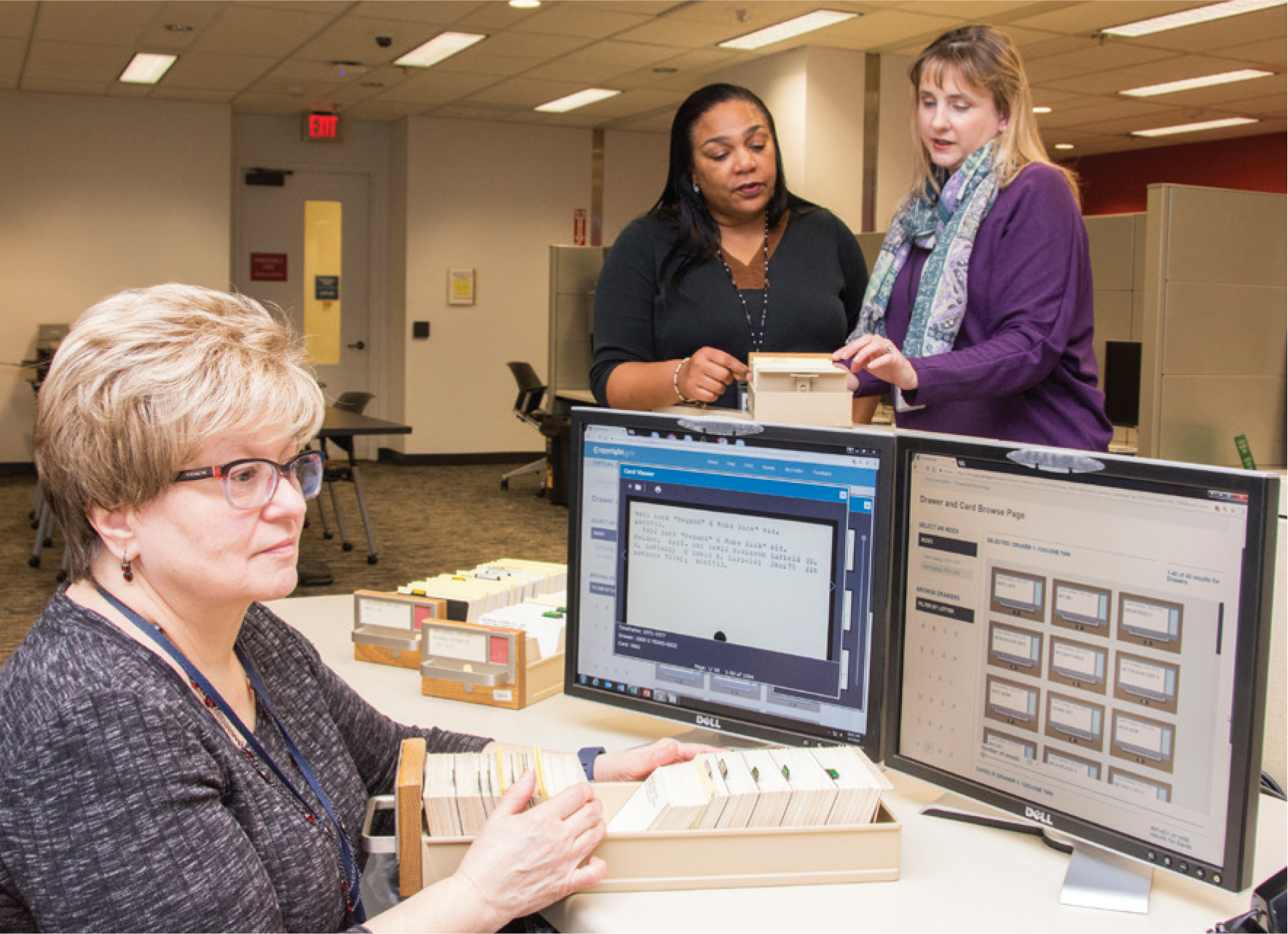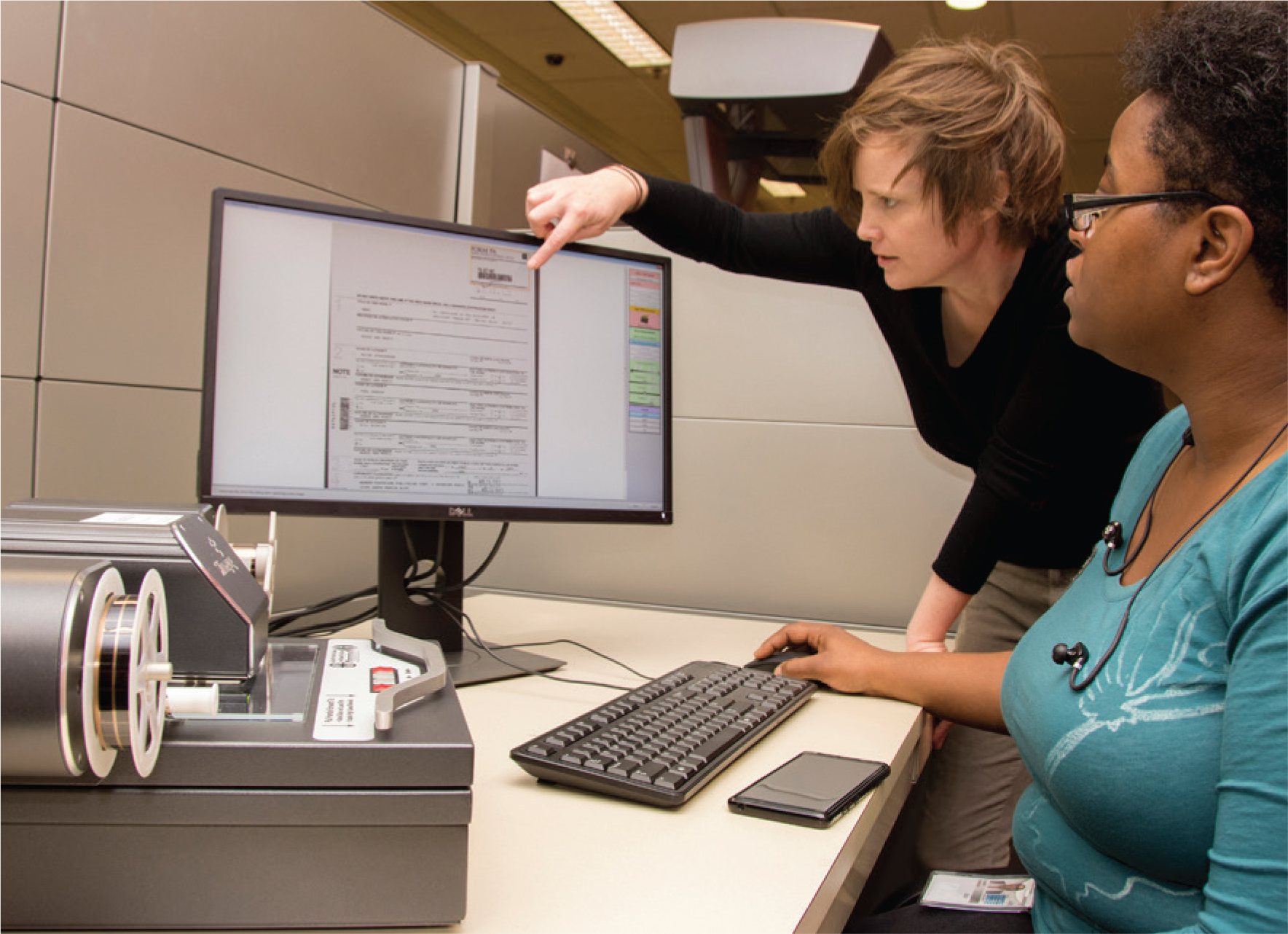
Overview
Mission Statement
The U.S. Copyright Office promotes creativity and free expression by administering the nation’s copyright laws and by providing impartial, expert advice on copyright law and policy for the benefit of all.
Creation of the Copyright Office
1790
First federal copyright law; U.S. District Courts administered registration

1870
Copyright administration centralized in the Copyright Office in the Library of Congress

1870–1896
Librarian of Congress served dual role as head of the Copyright Office

1897
Congress recognizes Copyright Office as a separate department

Today
Copyright Office continues work on domestic and international copyright matters on behalf of the U.S. public
For over 150 years, the Copyright Office has been at the forefront of U.S. copyright. As part of the Library of Congress since 1870, and recognized by Congress as a separate department of the Library since 1897, the Copyright Office registers copyright claims, records information about copyright ownership, provides information to the public, and assists Congress and other parts of the government on a wide range of copyright issues, both simple and complex. Through this work, the Copyright Office is committed to helping fulfill copyright’s Constitutional purpose and to promote creativity and free expression for the benefit of all.
Today, the Copyright Office’s staff of around 450 people, headed by the Register of Copyrights, is responsible for administering a complex and dynamic set of laws. The Copyright Office examines hundreds of thousands of copyright claims per year, resulting in an average of over half a million registrations annually. Every year, these records are supplemented with thousands of documents, representing hundreds of thousands of titles of works, which provide additional ownership information. The Copyright Office acts as a conduit for the Library of Congress, providing certain works of authorship, known as copyright deposits, to the Library for its collections. The Copyright Office also administers provisions of law related to statutory licensing, helping manage and distribute royalties as required by law.
The Register of Copyrights is the principal advisor to Congress on national and international copyright matters, testifying upon request and providing ongoing leadership and impartial expertise on copyright law and policy. The past few years have been particularly active, as Copyright Office lawyers assisted Congress with copyright review hearings and prepared numerous substantive reports, including: Copyright and the Music Marketplace; Revising Section 108: Copyright Exceptions for Libraries and Archives; Section 1201 Study; The Making Available Right in the United States; Software-Enabled Consumer Products; Authors, Attribution, and Integrity: Examining Moral Rights in the United States; and Section 512.
Congress has also delegated authority to the Copyright Office to develop regulations concerning many areas of copyright law. The subjects of these regulations span a wide range of topics, covering behavior by private parties in areas involving music licensing, or circumvention of technological measures protecting copyrighted material, as well as rules governing submissions to the Copyright Office, such as different types of copyright applications, fees paid for the Office’s services, filings related to statutory licenses, FOIA requests, and more. These regulations provide the public with a well-functioning copyright system overall and help the Copyright Office’s systems run smoothly. The Compendium of U.S. Copyright Office Practices provides in-depth information on many of the Copyright Office’s regulations and practices, serving as a helpful tool for using Office services.
The Copyright Office works on a wide variety of copyright matters with the courts and executive branch agencies, such as the Department of Justice, the Department of State, the Office of the U.S. Trade Representative, the Department of Commerce (including the U.S. Patent and Trademark Office), and the Office of the Intellectual Property Enforcement Coordinator. The Copyright Office works with these government colleagues to deliver critical domestic and international policy analysis and advice, including while participating on U.S. delegations to international meetings, and to provide counsel to the courts when significant copyright questions arise in litigation.
Additionally, the Copyright Office is focused on working with the public, including by answering questions and developing education programs. We produce a number of helpful Circulars, FAQs, and videos that explain copyright and explore the copyright issues we discuss at our events. You can also reach our Public Information Office with questions about general copyright issues or to get help with specific Office practices.
The Copyright Office is also looking toward the future, working to ensure that we continue to support the thriving U.S. copyright system from both legal and technological perspectives. The Copyright Office is implementing important parts of the landmark Orrin G. Hatch–Bob Goodlatte Music Modernization Act—one of the most significant legislative reforms to U.S. copyright law in two decades. As directed by the Copyright Alternative in Small-Claims Enforcement Act of 2020 (CASE Act), the Copyright Office established the Copyright Claims Board (CCB). The CCB is a three-member tribunal within the Office that provides an efficient and user-friendly option to resolve certain copyright disputes that involve up to $30,000 (called “small claims”). The Copyright Office also understands the importance of the role of technology and is in the midst of a modernization effort that is examining all aspects of the Office’s technology systems to determine how to be more efficient and productive.
If you would like more information about the Copyright Office, please contact us and let us know how we can help you.

The Copyright Office by the Numbers
In fiscal 2023, the Office issued more than 441,500 registrations and collected more than $37 million in registration application fees. The Office also acts as a conduit for the Library, providing certain works of authorship, known as copyright deposits, to the Library for its collections. In fiscal 2023, the Office forwarded more than 575,000 works, worth a net value of $47.3 million, to the Library. During fiscal 2023, the Office distributed more than $10 million in royalty payments from compulsory and statutory licenses.


